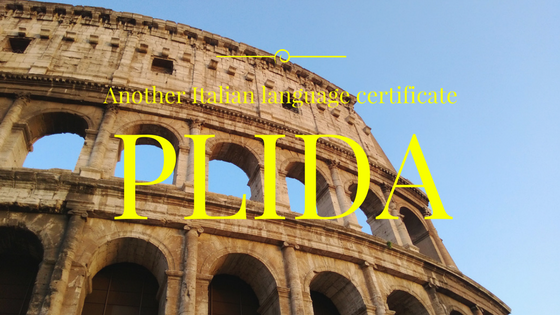Plida, which is the short form of Progetto Lingua Italiana Dante Alighieri, is another Italian language certificate and is issued by Dante Alighieri Society. With passing the exam you could prove your language skills of Italian as a foreign language.
But PLIDA is not the only language certificate for Italian. We also wrote articles about the certification of Italian as a foreign language, but especially about the language certificates CELI and CILS.
- Certification of Italian as a Foreign Language
- CELI – the Italian language certificate
- Prepare for CILS
Possibilites with PLIDA
After passing the exam you have a lot of possibilities.
#1 Job
At first a language certificate could help you to get the job which is your dream job. This could be because it is better paid, because you have better working conditions or only beause you want to change something in your working life.
The certificate helps you to get more in your job.
#2 University
Some students don’t want to study in their home country, so PLIDA is a good possibility to get the permission to study in Italy without writing a language test at the Italian university. With a language level B2 / C1 it won’t be a problem to study in Italy like a real Italian student.
#3 For you
But then there is another possibility: Maybe you want to pass the exam to demonstrate yourself or your family how good your Italian skills are. To write a language test doesn’t mean that you want a better job, that you would like to study in Italy or that you write it because you have to get the certificate.
Sometimes students write an exam because they want. It could be a goal which will be reached by getting the certificate. But it could also be a motivation to learn every day, to learn regularly.
The test PLIDA
The language test is based on real-life tasks and is divided in four parts: listening, reading, writing and speaking. How long each part is depends on the level.
There are six levels which are referred to the Common European Framework of Reference for Languages:
Elementary: A1 and A2
A1: includes i.a. familiar everyday expressions and simply questions about personal details
A2: includes i.a. the communication in simple and routine tasks and the direct exchange of information (for example about personal and family descriptions, shopping, local things)
Intermediate: B1 and B2
B1: includes i.a. the ability to express opinions, to give simple explanations and to understand written and spoken texts about familiar topics
B2: includes i.a. the language in a traditional scholastic context (school or university) and the ability to interact with Italian speakers fluently
Advanced: C1 and C2
C1: includes i.a. a strong confidence with the Italian language and culture (Italian can be used in all working situations) and the ability to write longer texts and to understand complex writings
C2: includes i.a. the complete knowledge of the Italian language (Italian can be used in any and all professional settings) and the possibility to teach Italian as a foreign language
To draw a comparison read also the articles about CILS and CELI. Only with knowing all the information you could find the perfect language certificate for you.
Come back to CourseFinders.com for more articles about languages and studying abroad.
Follow us on Facebook and Twitter and don’t miss another article on CourseFinders.com!
Find your perfect language school Search CourseFinders to find the course for you
